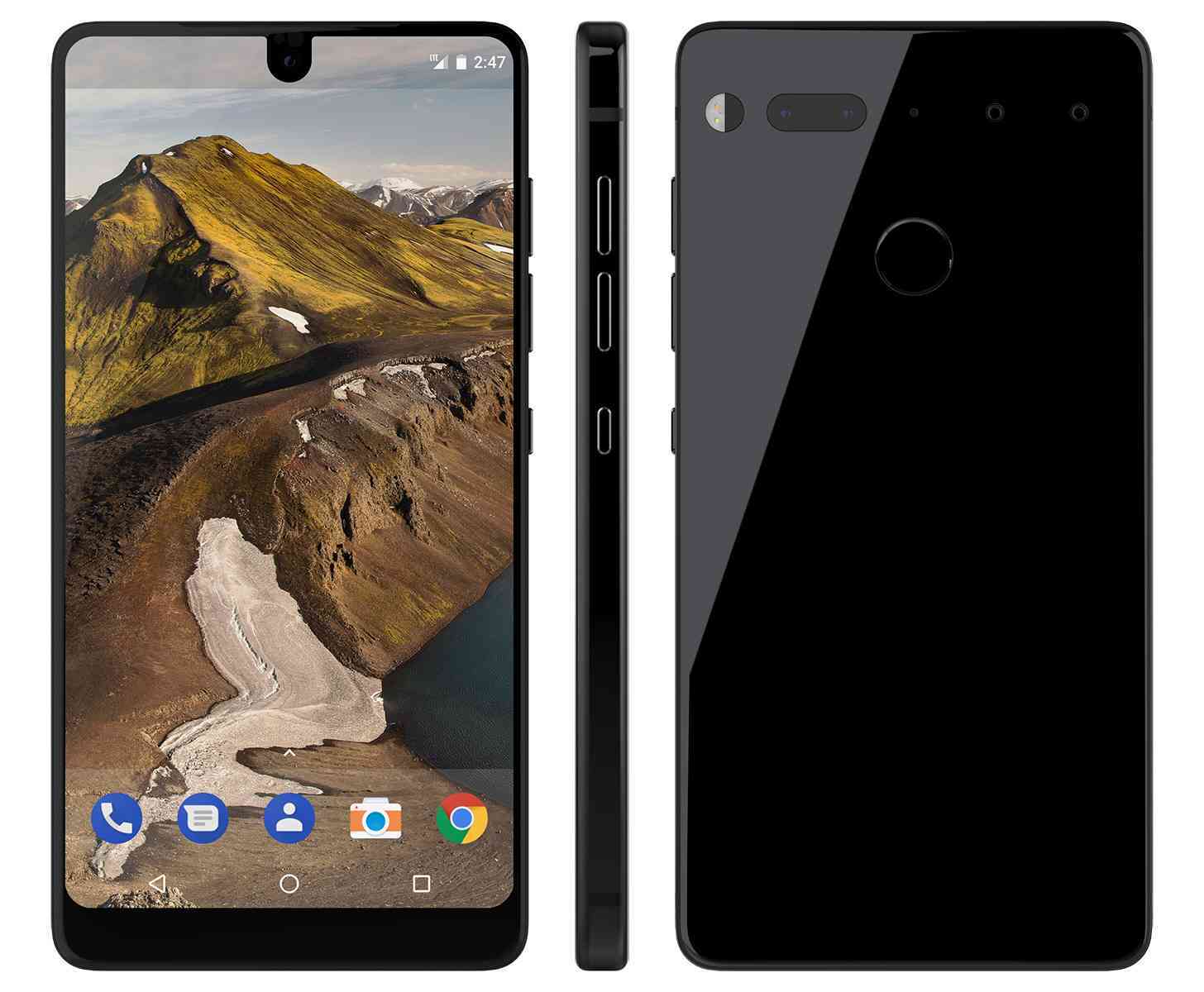
Today, the Essential Phone went up on Sprint's website, as well as online storefronts like Amazon and Best Buy, and the Now Network says the device will start shipping before the end of August. That means that by the time the Essential Phone arrives for customers, it'll be a little over 80 days since the device was announced and delivery finally happens.
Let's get out of the way that Essential is a brand new company, yes, and it's a small company when compared to its major competitors. But it's also a company that's valued at over $1 billion, and the company's founder, Andy Rubin, already said they are built to scale. Rubin also made it clear that he wanted the Essential Phone out in the wild almost immediately after the phone was announced, but, well, we know that didn't happen.
But the time is finally here, and so we won't have to wait long before the reviews come in and people get their hands on the exciting handset.
Essential is a company that has lofty dreams for itself. It's launching a modular phone in a market where, as made evident from companies like LG and even Google, modular phones haven't been too well-received. It's also got a plan to make the home even smarter, with the Essential Phone being the crux to all of these new devices. Artificial intelligence and machine learning are key factors for Essential, too. The company is hoping to cover a lot of bases, and I'm honestly hoping they can do just that.
We have a lot of options when it comes to buying a smartphone, especially in today's market where companies have even managed to make mid-range and low-end devices worthwhile. Technology is in a good place, and our smartphones have reaped the benefits. But having another major player to pick from is definitely not a bad thing. But how big can Essential get?
Essential is being run by a wide variety of people, most of which are veterans of other companies, including Apple, Google, and others. Andy Rubin himself helped make Android the juggernaut it is today, so obviously Essential has a lot of attention being paid to it. But I can't help but wonder if we're seeing another Palm on the horizon.
Palm used to have my favorite mobile operating system on the market. webOS was, by and large, a ton of fun to use, and while it didn't get developer support, and it ultimately found its way onto TVs and far away from smartphones, it will go down in history as one of my favorite operating systems ever. Palm had a chance to disrupt Android and iOS in a big way, but it wasn't to be.
The bare bones about it, though, is that the Essential Phone is "just another Android phone" in a sea of Android phones. Yes, it has a great edge-to-edge design, but we all know that's where the industry is going. We've seen it from Samsung and LG, and Apple will even be doing the same thing here soon, too. Motorola will eventually figure it out, as will Sony (maybe), and HTC is bound to reduce the bezels on its own smartphones, too. The Pixel 2 from Google is said to offer more screen real estate this time around, too, by reducing bezels.
And we've already talked about modular phones at length by now. LG gave it a shot and it didn't work out. Motorola tried it, and, well, they're still trying it for better or worse. Google canceled its own plans for a modular phone, and it doesn't look like its one feature that the general public is really on board with.
So can Essential really stand out? That's what I'm wondering, so I'm asking you. Do you think Essential can make a big wave in the smartphone market, and even go toe-to-toe with Samsung, HTC, LG, and the others? Or is this a company that will fare similarly to Nextbit? Let me know what you think.